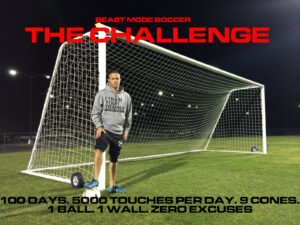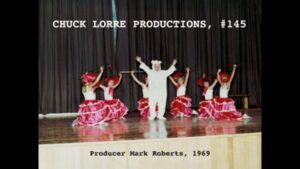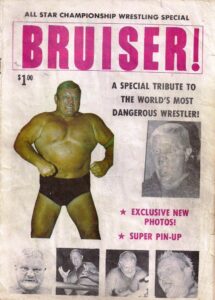By Elaine Viets

New words are supposed to be the sign of a living language. In that case, English is not only alive and kicking, it’s dancing barefoot around the room. Recently, Webster added 690 new words to the dictionary. Many are Gen-Z words that have officially entered the language.
Do you use any of these words in your writing? How about your speech?
Beast mode: an extremely aggressive or energetic style or manner that someone (such as an athlete) adopts temporarily (as to overpower an opponent in a fight or competition).

Doomscroll is a verb meaning, “to spend excessive time online scrolling through news or other content that makes one feel sad, anxious, angry, etc.” I expect to do a lot of doomscrolling as the 2024 Presidential election gets closer.

Chef’s kiss is “a gesture of satisfaction or approval made by kissing the fingertips of one hand and then spreading the fingers with an outward motion.” Often used as an interjection.
Here’s an example: “The crab itself deserved a chef’s kiss—not only was it clear that it was good quality crab that had been handled with care, but it also had this mouthwatering consistency that held its integrity until you bit into it. Then it was like a burst of flavor.—Amy Martino.”

Cheffy is an adjective describing the “the characteristic of or befitting a professional chef (as in showiness, complexity or exoticness.
You can’t go online without encountering tiny house. That’s “a small house or mobile home that typically has a floor plan of less than 500 feet and is usually designed for ergonomics and space efficiency.”

Thirst trap is “a photograph (such as a selfie) or video shared for the purpose of attracting attention or desire; also : someone or something that attracts attention or strong desire.” Kim Kardashian and her selfies are the definition of the word.

Girlboss is “an ambitious and successful woman (especially a businesswoman or entrepreneur).” Forbes magazine wrote “But almost every notable girlboss tumbled out of the C-suite in rapid succession in June 2020.”
Really? Girlboss? Did that word escape from the 1950s?
Nope, Webster first noticed it in 2016. That’s one word I’m not planning to use.

GOATED: An adjective meaning, “considered to be the greatest of all time,” Webster said. I think it’s presumptuous, unless you can see into the future.
Zhuzh: To kick it up a notch. Webster credits Queer Eye’s “original fashion guru, Carson Kressley for making zhuzh popular.” This show also brought you metrosexual.
“Zhuzh describes the act of making slight improvements or accents to a wardrobe or look (such as by adding a pocket square, teasing one’s hair, or popping a shirt collar),” Webster says. That’s Carson in the middle of this photo below.

Rizz means “romantic appeal or charm.”
Old words with new definitions.
Doggo. To lie doggo means to hide, but now doggo has been repurposed as slang for dog.

Bingo card: This is not your Aunt Myrtle’s bingo card, the one she played in the church basement. Webster also says it “means a list of possible, expected or likely scenarios.” As Molly Taylor wrote, “I’m pretty sure nobody had ‘global pandemic’ on their bingo cards back in 2016 …”

Hallucination has taken on a new meaning in the computer world. This is how Webster defines it: “a plausible but false or misleading response generated by an artificial intelligence algorithm.”
Webster gives this example: “This type of artificial intelligence we’re talking about can sometimes lead to something we call hallucination,” said Prabhakar Raghavan in an interview . . . “This is then expressed in such a way that a machine delivers a convincing but completely fictitious answer.”
Simp used to be a simple word. It meant someone who’s not too bright. Now it’s sprouted several new meanings.

Webster says simp can be informal and often disparaging. “Someone (especially a man) who shows excessive concern, attention, or deference toward a romantic partner or love interest.” Margaret Taylor says a simp is “… multiple videos offering examples of what makes someone a simp, like wearing a nice outfit to school and hoping your crush notices only for them to be absent.—Magdalene Taylor.”
Or, a simp can be someone who “has a marked fondness or desire for something.” Morgan Sung used it this way: “… as a simp for multifunctional appliances, I was enamored off the bat.”
And last but not least, simp can be a rather awkward intransitive verb. Webster gives this example from John James: “A Brazilian influencer has taken simping for the richest man on earth to a new level by getting Elon Musk’s name … tattooed across his forehead.”
Oh, that’s what that is:
Some new definitions give us words we need.
Bracketology is “the practice or study of predicting the outcome of elimination tournaments or competitions especially in NCAA college basketball.”
Vanity card is “the logo of a production company that appears briefly on-screen following the credits for a television show or movie.” Executive producer and writer Chuck Lorre’s vanity cards are famous. Here’s one:

Kayfabe is “the tacit agreement between professional wrestlers and their fans to pretend that overtly staged wrestling events, stories, characters, etc., are genuine.”

Hah! True wrestling fans know wrestling is real and the rest of the world is kayfabe. The word has been around more than 50 years. Webster mentions “. .. a letter to the sports editor of the Chicago Tribune concerning a fight between Dick the Bruiser and Angelo Poffo is signed ‘Mark Kayfabe,’ a name presumably made up from mark ‘the victim of a con’ and kayfabe.”
Like words and word play? Check out this page at Webster’s dictionary: https://www.merriam-webster.com/wordplay/new-words-in-the-dictionary
You’ll enjoy it. As Webster says, TTYL — Talk to you later.

Enjoy hardcover mysteries? LATE FOR HIS OWN FUNERAL, my seventh Angela Richman, death investigator mystery is on sale at Amazon. https://www.amazon.com/gp/product/0727850296/ref=ox_sc_saved_image_2?smid=ATVPDKIKX0DER&psc=1

Thanks for these, Elaine. A great start to my morning. And now I know how to spell Zhuzh. (How does it compare to “kick it up a notch”?)
It’s shorter.
Thanks for the updates, Elaine.
I’ve used Beast Mode ever since its genesis, the great Marshawn Lynch during his RB career with the Seahawks. (The single worst call in NFL history was NOT giving Beast Mode the ball at the goal line in Super Bowl 49).
Mrs. B and I use doomscroll a lot now. It’s a perfect word to describe what we catch ourselves doing on our phones.
I have trouble with GOAT, since in my athletic days it refereed to the guy who blew the game. You could be the hero or the goat. Now it means the exact opposite!
GOAT bothers me, too, Jim, because it’s so presumptuous. How do you know someone is the Greatest of All Time?
GOAT or for that matter, anything starting on ESPN is garbage. Considering most sports when someone is the GOAT they aren’t even the best at their given sport this year.
Amen, Alan.
Thanks for the update. I hate encountering words I don’t know.
Why do I automatically believe someone is going to lie to me when I see NGL at the beginning of their text? Thanks for the update–so far I haven’t used any of the words…and probably won’t.
NGL reminds me of when I hear someone say, “That’s what happened. Honest.” I immediately suspect they aren’t honest.
Or when the waiter says, “Your food will be out shortly.”
“Shortly” is the most ambiguous word in the English language.
Also the phrase, ‘I’ll be ready to go in a minute, honey.”
Thanks for these updates, Elaine! Doggo’s I use all the time now, a cute, affectionate term. Another I see and use online is “chef’s kiss” often shortened to “chef kiss,” usually in response to a particularly witty joke. I’ve also checked a great many things off my author bingo card. Put me down as another person who won’t use GOAT for greatest of all time 🙂
Let’s hope GOAT and GOATED die of neglect, Dale. Except on ESPN.
Thanks for the update, Elaine. I’ve heard about half the words on Webster’s list, esp. the geekspeak about AI. Sometimes I wonder if we’re all living in a great big hallucination.
Word origins are fascinating–rizz is a shortened form of “charisma” from ancient Greek meaning “favor” or “gift” “Charisma” was overused in the 1970s and ’80s to the point of becoming cliche. For a while, every male celebrity was oozing with charisma. Think John Travolta and Richard Gere.
Is “simp” also be a shortened form of “simper” or “simpering” (behave in a coy or ingratiating manner)?
I don’t like the new definitions of simp, Debbie. It used to be a nice, well, simple, word.
Thanks for the list, Elaine. Thee’s nothing new about hallucination. Politicians have been spouting “a plausible but false or misleading response” since long before there was a Websters Dictionary! 🙂
Btw, the new list seems to have a lot of “words” that are made up of more than one word. (e.g., beast mode) I would have defined those as terms or phrases.
I stand corrected, Kay. Wordsmithing should be accurate.
Actually, Merriam-Webster called them words.
“Phantasm” would be a better term for AI ridiculosities.
RE: “Thee’s nothing new about hallucination. Politicians have been spouting “a plausible but false or misleading response” since long before there was a Websters Dictionary!”
Once you understand the very close relationship between AI and politicians you’ll get that AI is largely designed to give the public “hallucinations” or fake reality — https://www.rolf-hefti.com/covid-19-coronavirus.html
“AI responds according to the “rules” created by the programmers who are in turn owned by the people who pay their salaries. This is precisely why Globalists want an AI controlled society- rules for serfs, exceptions for the aristocracy.” —Unknown
“Almost all AI systems today learn when and what their human designers or users want.” —Ali Minai, Ph.D., American Professor of Computer Science, 2023
“Who masters those technologies [=artificial intelligence (AI), chatbots, and digital identities] —in some way— will be the master of the world.” — Klaus Schwab, at the World Government Summit in Dubai, 2023
Amen, Alan.
“Chef’s kiss” is expressed as <3 among the young. So, this article is a <3.
"Girl boss" is now a term of derision. The kerfuffle around the Disney live action of SNOW WHITE, and the star who won't shut her mouth about girl bosses and not needing love helped destroy the term.
GOAT looks back, not forward, so pundits and fans can quantify and create more content. I've seen it used for all the Iron Man suits for the love of all things nerdy.
Glad to know that “girl boss” is a term of derision. Hope Webster catches onto that.
Surprised to learn authors need to take care with characters named “Karen.”
Fortunately my name remains echo free.
We do. But I consider “Karen” a sexist term because there’s no male equivalent. Some men also act rude and entitled.
Akshully, there are a number of putative male equivalents, including Terry, Chad, Chaz, Eric, Steve, Allen, Kevin, Greg, Keith, Brad, David, and Robert. “Karen” is also in the running as a term for obnoxious males, so it’s not sexist, it’s just plain rude to use a name shared by many nice people to describe a class of not-nice people, regardless of gender.
Agreed. I’m friends with several Karens who wish they’d been named Susie. And when they go complain for good reasons, they get labeled . . .. you guessed it.
Well…if I ever use them, or even one, it’ll be in dialogue from a character that deserves to be bumped off.
LOL, Reavis.